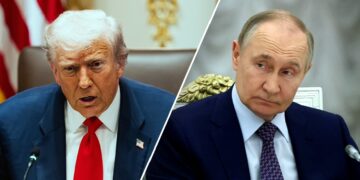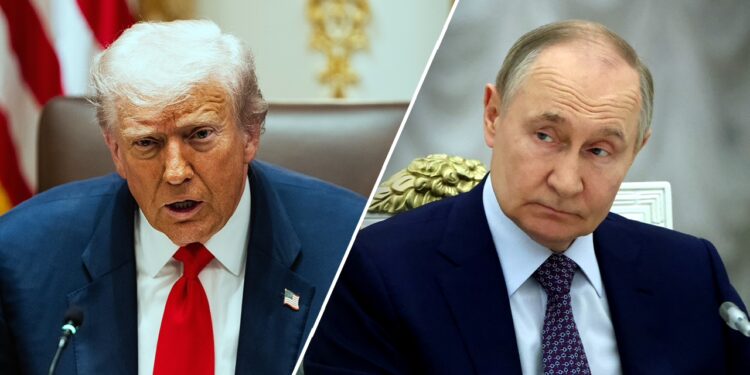By Enyichukwu Enemanna
Russia has reacted angrily following substantial sanctions on its two largest oil companies by the United States on Thursday, the first economic punishments slapped on Moscow by President Donald Trump during his second term.
Experts said it remains to be seen, the extent to which this move may damage the Russian economy or Vladimir Putin’s war machine, as Trump hopes to pressure Moscow to halt its assault on Ukraine.
Days after cancelling a planned summit with Putin, citing a lack of progress in the negotiations, Trump took the major step by effectively blacklisting Rosneft and Lukoil, Russia’s largest oil companies.
The announcement was welcomed by Kyiv and its European allies, which added their own new raft of sanctions on Moscow, earning the ire of Russian officials and the state-controlled media.
Speaking to journalists at the Kremlin on Thursday, Putin called the sanctions an “unfriendly act” but quickly brushed off their likely impact. “They are serious in nature and will have certain consequences, but they will not have a significant impact on the health of our economy,” he said.
Putin added that sanctions on Russian oil could lead to “a sharp increase” in gas prices across the world, adding: “If you take into account the domestic political calendar in the United States, it is clear how sensitive some processes would be. Those advising the current administration to adopt such measures should ask themselves whom they are really serving.”
The Russian leader said that he understood the U.S. wished to “cancel or postpone” the planned Budapest summit, adding that “for both me and the U.S. president, it would be a mistake to approach this lightly and then walk away without the expected result.”
Hawkish ex-President Dmitry Medvedev, who now serves as the deputy chairman of Russia’s Security Council, was more forthright in his criticism of the Trump administration. “The USA is our adversary, and their loquacious ‘peacemaker’” — meaning Trump — “has now fully taken up the path of war with Russia,” Medvedev wrote in a social media post.
Foreign Ministry spokeswoman Maria Zakharova added in a news briefing: “If the current U.S. administration decides to follow the example of its predecessors, who tried to pressure or force Russia to abandon its national interests through illegitimate sanctions, the outcome will be exactly the same: a failure, both politically at home and harmful to global economic stability.”
The sanctions have been received in Russia as another flip-flop by Trump, who has tried to strong-arm both Putin and Ukrainian President Volodymyr Zelenskyy at different times during his second term.
Trump has often expressed verbal frustration with Putin, accusing him of making positive diplomatic noises before bombing Ukrainian civilians again, but until now had avoided taking direct action.
This week, he said that meeting with Putin would be a “waste of time,” after Russia rejected the American demand that a ceasefire come before talks.
“We cancelled the meeting with President Putin; it just didn’t feel right to me,” Trump said at a White House gathering of reporters. “It didn’t feel like we were going to get to the place we have to get. So I canceled it, but we’ll do it in the future.”
The sanctions drew praise from Ukraine and its supporters.



































